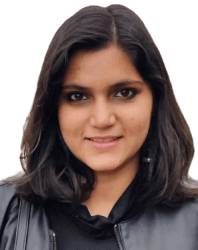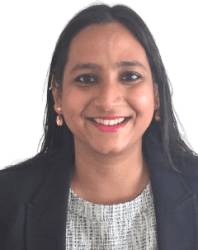- HOME
HOME
- SERVICES
SERVICES
- Study Abroad
Study Abroad
- Study Abroad Counseling
- Parent Counseling
- Test Prep
- College Selection
- Essay Editing and Applications
- Interview Prep
- Post Interview Essay
- Re-applicant Essay
- Resume Review
- Post Result Strategy
- Scholarship Application
- Waitlist Letter
- Letter of Recommendation (LOR)
- Study Abroad Scholarships
- IBDP Diploma Essays
- Essay tutorial
- Career Guidance
- Packages
- FAQ
- Study In India
- Skill Enhancement
- Study Abroad
- DEGREES
- TESTIMONIALS
- TEAM
- OFFERS
- RESOURCES
RESOURCES
- Free Tools
- Undergrad (8th – 12th Grade)
- Masters
- MBA
- M.Phil / Ph.D
M.Phil / Ph.D
- Executive Education
Executive Education
- Career Guidance
- Top Global Universities
- Top MBA Programs
- Admission Officers Insights
- Books
- EVENTS
EVENTS
- FINANCE YOUR EDUCATION
FINANCE YOUR EDUCATION
- MEDIA
- HOME
- SERVICES
- Study Abroad
- Study Abroad Counseling
- Parent Counseling
- Test Prep
- College Selection
- Essay Editing and Applications
- IBDP Diploma Essays
- Essay tutorial
- Interview Prep
- Post Interview Essay
- Re-applicant Essay
- Resume Review
- Post Result Strategy
- Scholarship Application
- Waitlist Letter
- Letter of Recommendation (LOR)
- Study Abroad Scholarships
- Career Guidance
- Packages
- FAQ
- Study In India
- Skill Enhancement
- Study Abroad
- DEGREES
- TESTIMONIALS
- TEAM
- OFFERS
- RESOURCES
- EVENTS
- FINANCE YOUR EDUCATION
- MEDIA
Don't let the lockdown lock you down!
We know that the present pandemic can be difficult. However, this is a great time to reflect on your study abroad and career goals and plan ahead.
We have made our services accessible at reduced prices in this lockdown. ReachIvy.com Experts are here to help you!
A-Level Courses
The General Certificate of Education (GCE) Advanced Level, or A-Level, is a secondary school leaving qualification. It is equivalent to the higher secondary education but the students can sit for it only if they have completed their GCSEs. It is an internationally recognized and accepted qualification for entry into higher education.
The A-Level is a rigorous program that place more emphasis on individual subject knowledge yielding depth of knowledge in your subject areas. It means pupils aiming for degrees in the sciences, mathematics, or subjects with a high science content, such as engineering or medicine, might find doing A-levels better to prepare for the competitive exams.
Program Overview
- Curriculum. A-levels consist of two equally weighted parts; AS, assessed in the first year of study, and A2, assessed in the second year of study. Each part comprises two modules, or three for science subjects and Mathematics. The modules within each part may have different weights. Modules are either assessed by exam papers marked by national organizations, or by school-assessed, externally moderated coursework.
- AS or A1 is assessed in the first year of study. The AS modules together can be awarded as a stand-alone qualification called an AS-level. The minimum number of A-level exams/ subjects required in AS is three. Although the number of subjects taken by students can vary. A typical route is to study four subjects at AS level and then drop down to three at A2 level.
- A2 is assessed in the second year of study. The A2 modules do not form a qualification in their own right; the satisfactory completion of the AS and A2 modules in the same subject is required to constitute a complete A-level. Typically students take 3-4 exams in A2 Level but there is no limit set on the number of A Levels one can study, and a number of students take five or more A Levels.
The newly introduced GCE Applied A-level suite, generally has a more vocational twist. For example, the new GCE A-level in Applied Business combines the traditional theory-based subject ‘Business Studies’ and adds a more practical and hands-on approach to it. In this case, for the mandatory modules in the AS year, the candidate is expected to create a simulated Marketing Proposal (module 1) and Recruitment and motivational package (module 2) as opposed to just studying the processes. This essentially asks the candidate to show a more thorough insight by actually applying the theory.
Assessment
The assessment criteria vary from subject to subject under the uniform mark scheme (UMS). Under this scheme, four-module A levels have a maximum mark of 400 UMS (or 200 UMS each for AS and A2), and six-module A levels have a maximum mark of 600. The pass grades for A Levels are, from highest to lowest, A*, A, B, C, D and E. For passing grades, 40% corresponds to an E grade, 50% a D, 60% a C, 70% a B, and 80% an A. Achieving less than 40% results in a U (unclassified).
The A* grade was introduced for higher education entry into highly competitive courses, and is awarded to candidates who average 80% UMS across all modules, with an average score of at least 90% UMS in A2 modules. There is no A* grade at AS level
Pros & Cons
A- Level can be thought of as a hard core learning based study curriculum, where students are expected to study thoroughly and acquire knowledge in a competitive format. Students who thrive in a knowledge-based learning environment are the ideal fit for A-Levels.
Benefits of the A-Level program include:
- The program allows you to rigorously study 3-4 different modules.
- A-Level graduates are truly college ready. As the program fosters a variety of academic and non-academic knowledge, skills and abilities, they provide the ideal platform for a successful transition from high school to college.
However:
- Students enrolled in the A-Level do tend to pay a higher fees compared to other Indian qualifications.
- Some students struggle with the level of organization and time management required for the academic and non-academic commitment.
- Every student learns differently, especially if from a young age they have been part of one style or system and are now asked to submerge themselves in another. For some, the transition is seamless or minimal, however for those who are more comfortable with the rote learning methodology it may be difficult to excel in this environment.
Conclusion
The A-Level is a knowledge focused learning experience. As students focus on 3-4 subjects, as opposed to 6 at the IB level, it provides a more concentrated education program versus an all-rounder approach the IB program inculcates.
MEET OUR EXPERTS

Garima Rana
MPP - University of Oxford
B.Sc.,Indira Gandhi Delhi Technical University

Ananya Jain
B.Com, Delhi University
M.Fin, Cambridge Judge Business School

Kovid Gupta
MBA, Cornell University
BBA, BS, BA, The University of Texas at Austin

Archana Rao
MBA, Darden University of Virgina
B.Tech, University of Pune

Suman Barua
M.Ed, Harvard University
B.E, Mumbai University

Madhav Pathak
MBA, Indian School of Business
MS, Carnegie Mellon University

Gaargi Desai
MS, Harvard University
BA, Tulane University

Ameya Bhangle
MBA, Harvard Business School
B.Sc.(IT), St. Xavier’s College, Mumbai

Niyati Dave
MA, Smith College, Northampton
Fellowship, Urban Studies/Affairs

Aashay Doshi
MBA, Tepper School of Business Carnegie Mellon University
B.Sc., University of Maryland College Park
OUR STUDENTS HAVE REACHED







